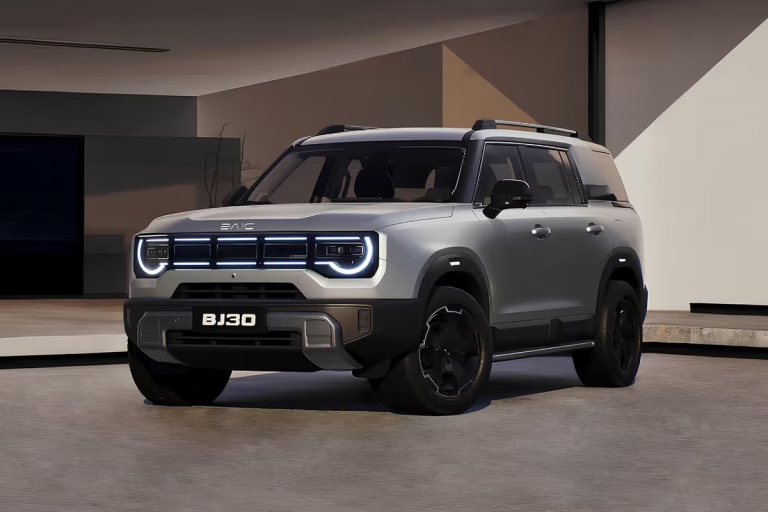Chinese automotive manufacturer BAIC has announced that its upcoming B30 SUV will be locally assembled at its Coega production facility in Gqeberha, marking a significant milestone in the company’s long-term investment in South Africa.
The B30 is scheduled to officially launch in November 2025, with local assembly commencing shortly thereafter. BAIC emphasized that this move reflects its strategic intent to deepen its footprint in the South African market by producing key models domestically.
Ameena Hassan, Brand & PR Manager at BAIC South Africa, commented:
Localizing the B30 is about more than manufacturing – it’s about investing in people, skills, and a sustainable automotive future for South Africa.
She added that the Coega facility was designed to support long-term growth, and the addition of the B30 model reinforces BAIC’s confidence in the South African market and its ambition to become a truly local brand.
The Coega plant, which represents a R11 billion investment, is one of the largest industrial projects in South Africa’s automotive sector. It currently assembles the BAIC B40 Plus and X55 Plus models. The introduction of the B30 is expected to expand production capacity and sustain hundreds of local jobs across manufacturing, logistics, and dealership networks.
Beyond job creation, the local assembly of the B30 is aimed at strengthening supply chain resilience and reducing reliance on imports. BAIC also plans to explore future component sourcing from South African suppliers, further embedding itself into the local economy.
Hassan added:
We see South Africa as the gateway to the continent. Building the B30 locally allows us to deliver vehicles faster, tailor them to local conditions, and invest directly in the communities that support us.
BAIC’s expansion comes at a time when several Western automotive giants are facing headwinds in South Africa. Ford Motors, for instance, is scaling back operations, with nearly 500 workers being retrenched across its Pretoria and Gqeberha plants. This move follows declining European demand for its Ranger pickup and disruptions caused by international tax policy changes.
BMW is also adjusting its strategy, seeking new markets such as Canada for its locally manufactured vehicles due to tariff challenges in the United States. BAIC is part of a broader wave of Chinese automotive companies ramping up their presence in South Africa. Brands like Chery and Haval continue to gain traction in the passenger vehicle segment, largely due to their competitive pricing.
Meanwhile, BYD, the world’s largest manufacturer of new energy vehicles, has announced a major infrastructure initiative in South Africa. BYD Vice President Stella Li revealed plans to install 300 electric chargers, including high-capacity 1MW units. The rollout will begin at BYD dealerships and expand to highways and urban centers.
BYD is also exploring solar energy expansion across South Africa, although Li noted that the company is still in its early stages in the region and not yet ready to establish a manufacturing facility.


